Nestled in a corner of a farm shed in north Tipperary, the CANVAS “nano brewery” is, like one of its founders, Maurice Deasy, a pretty unique proposition. In fact, as stories around Irish farmers’ journeys to sustainability go, it’s hard to match Maurice’s in terms of entrepreneurial spirit and innovation.
Maurice and his father, Ruaidhri, produce winter barley, winter oats and spring barley on their 120ac farm, with 80 ewes also kept.
Maurice has a particular passion for Irish heritage grains which, though lower-yielding, offer greater resistance to drought and disease.
To add value and raise awareness, he malts and brews these grains on-site to make bespoke farmhouse beers. He is justly proud that these are “single-source” products – everything that goes into making them from energy to native hops to spring water – comes from the farm, creating a unique “terroir”.
Walking the farm, you can’t help but be impressed by both the diversity and condition of habitats present: clearly nature is valued here. Mature hedgerows flank fertile fields of corn, cover crops and multispecies swards.
A river runs through 20 acres of mixed woodland containing oak, elm, crab apple and Scots pine.
Flooded callows, a sphagnum-rich raised bog and a wonderful wildlife pond, a birthday present for his mother, also feature here.
The thinnings are used to make biochar and to fire the brewery plant
Small wonder that otters, kingfishers, owls, buzzards, woodcock and snipe also call it home.
What’s particularly notable though is how nature is put to work in service of the farm economy. Hydro power is harvested from the river using an ingenious Archimedes screw system, solar power from a freestanding farmyard solar structure built by Maurice’s brother, Andrew.
The woodland too plays its part, managed using a coppice and standard system.
The thinnings are used to make biochar (in a homemade pyrolysis unit) and to fire the brewery plant. Clover, chicory and plantain are sown to fertilise swards – reducing fertiliser costs and drought-risk while supporting pollinators.
But the main work on this, and most farms, is done by the soil, so for Maurice it’s all about soil health – and he just revels in its complexity.
An advocate of conservation agriculture, he builds healthier soils using cover crops, crop rotations and by minimising disturbance and compaction.
He uses biostimulants including seaweed, vermiliquid (worm tea) and biochar to boost natural processes.
Pragmatist
A pragmatist, he still ploughs and uses chemicals but is successfully transitioning away from both. Maurice is keenly aware of the bottom line when it comes to his farm business, with an impressive command of the figures.
He recognises the vagaries of weather and commodity markets, which will hit him hard this year, but he focuses on what he can control – his input costs, particularly chemical nitrogen and diesel. He has reduced the use of these hydrocarbons significantly, embedding greater resilience into his farming system.
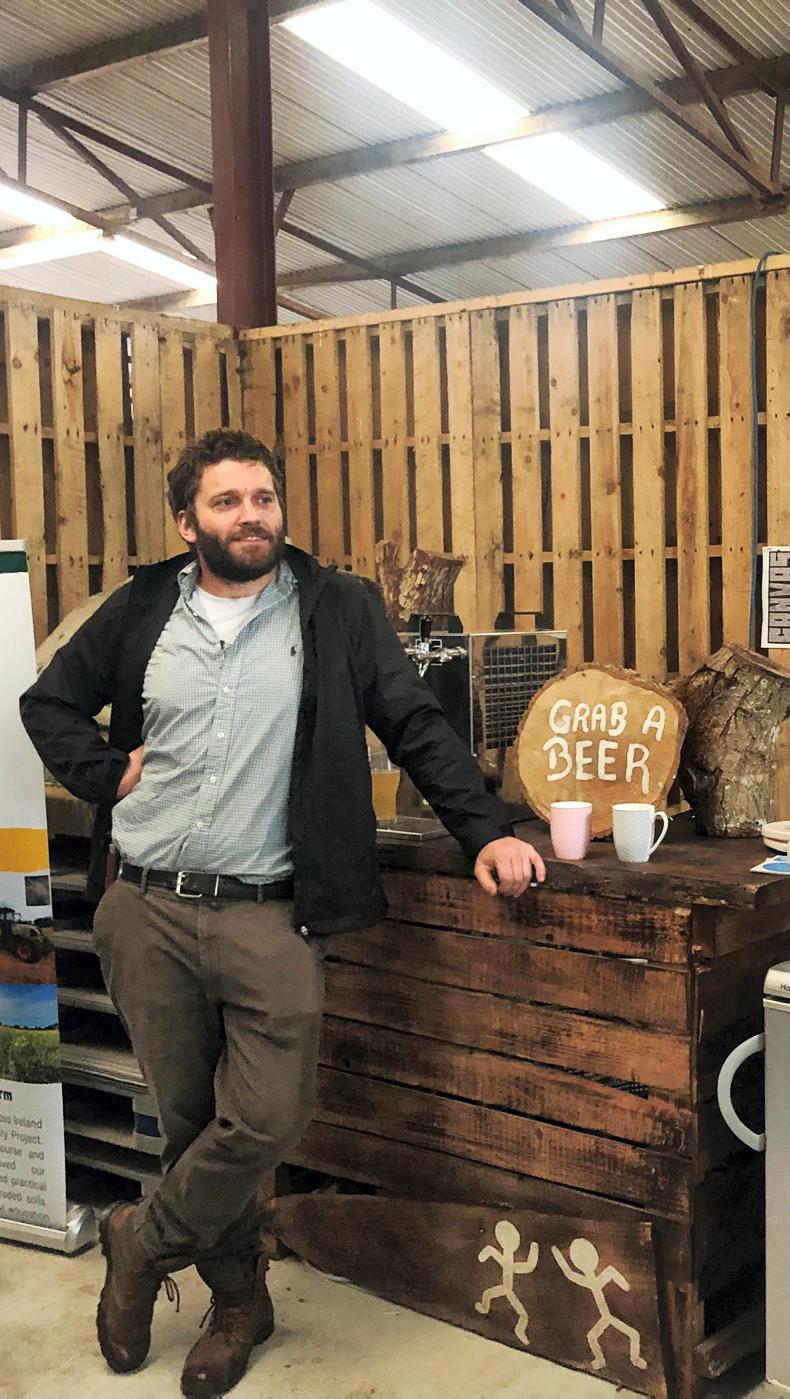
Maurice Deasy at his Canvas brewery where he produces single-source beers. Everything that goes into making them – from energy to spring water to native hops and heritage grains - comes from the farm, creating a unique ‘terroir’.
His is a questioning mind – well suited to his off-farm work as a Teagasc researcher currently exploring anaerobic digestion – and is hungry for knowledge.
Learning is an investment
For Maurice, learning is an investment, which he feels will give him the confidence and authority to “plough his own furrow” as a farmer and resist prevailing mindsets and agendas.
Refreshingly honest about getting things wrong sometimes – “but at least now the mistakes we make are new mistakes” and “sure my opinion might change again in another six months” – Maurice values guidance from other farmers.
He is engaged in a number of peer-learning networks including BASE Ireland, Talamh Beo and Farming for Nature, where he gets to share his ideas with other farmers who are “further down the road”.
Indeed, he cites a neighbour’s advice to attend a BioFarm conference where he joined BASE Ireland as the moment when he kickstarted his current farming journey.
Maurice seems driven by a healthy scepticism, boundless curiosity and a desire to create something truly unique on his piece of land during his stewardship of it. He knows there are risks – and that no one will thank him for taking these risks – but also rewards, such as the satisfaction in doing things on his terms and nobody else’s, “walking his walk” towards sustainability.
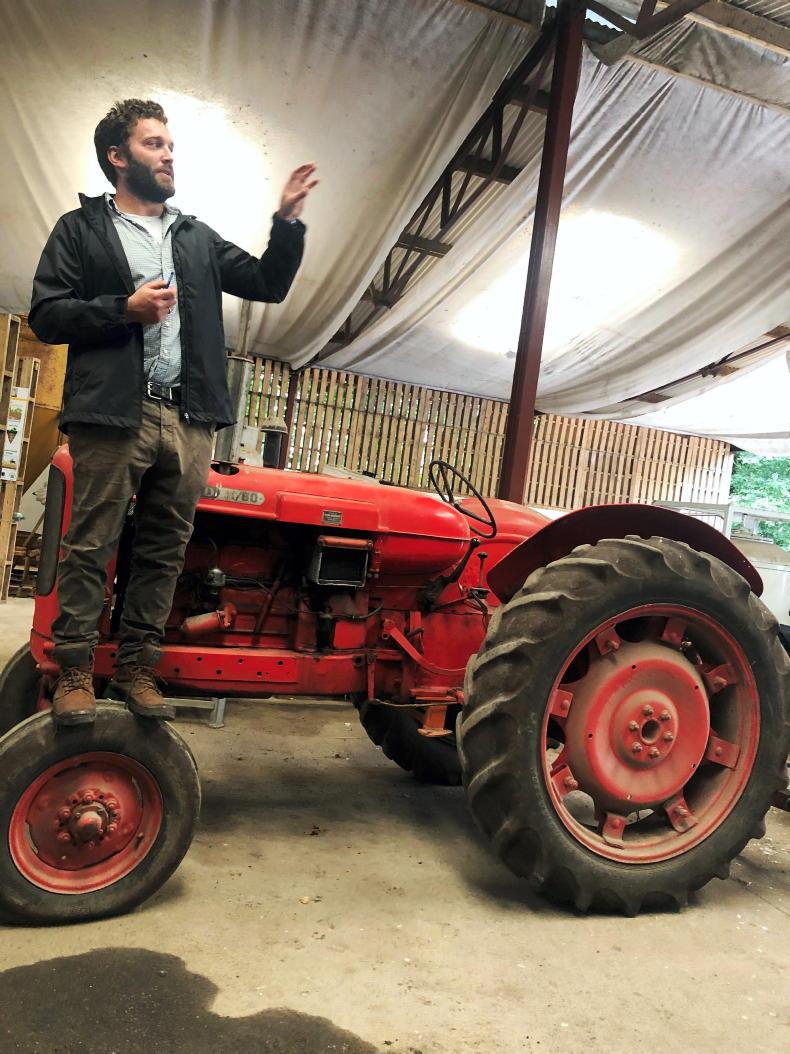
Maurice Deasy standing on the tractor that his father Ruaidhri used when he started farming.
A visit to Maurice’s farm leaves one’s head spinning – not (just) from the beer but from the whirlwind of projects and ideas.
It’s a welcome reminder of how exciting, stimulating and rewarding farming can be, but also that it demands an open mind, hard work, passion and ingenuity.
Sipping a glass of his Elderflower Pioneer blonde beer I, for one, am glad that Maurice and his family are undertaking this journey and we should all toast his courage in doing so. Sláinte!
Heritage grains, or heirloom varieties, is a term used to describe grains such as wheat, barley, rye and oats grown by our ancestors. Genetically diverse, these were adapted to the growing conditions and agriculture of a particular area.
Many heritage grains are “open pollinated”, which means you can save your own seed, helping the crop to further adapt to local conditions over time. Heritage grains typically yield less than modern cultivars but their unique merits lend themselves well for use in specialist bakeries – and breweries like CANVAS.
Maurice participates in a number of peer-learning networks such as the National Organic Training Skillnet (NOTS); www.nots.ie) which runs courses on regenerative farming and organises the annual BioFarm conference, BASE Ireland (Biodiversity, Agriculture, Soil, Environment; www.baseireland.ie) – a farmer-to-farmer knowledge sharing network), Talamh Beo (www.talamhbeo.ie) and Farming for Nature (www.farmingfornature.ie). These non-profit entities offer valuable social and educational opportunities for farmers.
Nestled in a corner of a farm shed in north Tipperary, the CANVAS “nano brewery” is, like one of its founders, Maurice Deasy, a pretty unique proposition. In fact, as stories around Irish farmers’ journeys to sustainability go, it’s hard to match Maurice’s in terms of entrepreneurial spirit and innovation.
Maurice and his father, Ruaidhri, produce winter barley, winter oats and spring barley on their 120ac farm, with 80 ewes also kept.
Maurice has a particular passion for Irish heritage grains which, though lower-yielding, offer greater resistance to drought and disease.
To add value and raise awareness, he malts and brews these grains on-site to make bespoke farmhouse beers. He is justly proud that these are “single-source” products – everything that goes into making them from energy to native hops to spring water – comes from the farm, creating a unique “terroir”.
Walking the farm, you can’t help but be impressed by both the diversity and condition of habitats present: clearly nature is valued here. Mature hedgerows flank fertile fields of corn, cover crops and multispecies swards.
A river runs through 20 acres of mixed woodland containing oak, elm, crab apple and Scots pine.
Flooded callows, a sphagnum-rich raised bog and a wonderful wildlife pond, a birthday present for his mother, also feature here.
The thinnings are used to make biochar and to fire the brewery plant
Small wonder that otters, kingfishers, owls, buzzards, woodcock and snipe also call it home.
What’s particularly notable though is how nature is put to work in service of the farm economy. Hydro power is harvested from the river using an ingenious Archimedes screw system, solar power from a freestanding farmyard solar structure built by Maurice’s brother, Andrew.
The woodland too plays its part, managed using a coppice and standard system.
The thinnings are used to make biochar (in a homemade pyrolysis unit) and to fire the brewery plant. Clover, chicory and plantain are sown to fertilise swards – reducing fertiliser costs and drought-risk while supporting pollinators.
But the main work on this, and most farms, is done by the soil, so for Maurice it’s all about soil health – and he just revels in its complexity.
An advocate of conservation agriculture, he builds healthier soils using cover crops, crop rotations and by minimising disturbance and compaction.
He uses biostimulants including seaweed, vermiliquid (worm tea) and biochar to boost natural processes.
Pragmatist
A pragmatist, he still ploughs and uses chemicals but is successfully transitioning away from both. Maurice is keenly aware of the bottom line when it comes to his farm business, with an impressive command of the figures.
He recognises the vagaries of weather and commodity markets, which will hit him hard this year, but he focuses on what he can control – his input costs, particularly chemical nitrogen and diesel. He has reduced the use of these hydrocarbons significantly, embedding greater resilience into his farming system.

Maurice Deasy at his Canvas brewery where he produces single-source beers. Everything that goes into making them – from energy to spring water to native hops and heritage grains - comes from the farm, creating a unique ‘terroir’.
His is a questioning mind – well suited to his off-farm work as a Teagasc researcher currently exploring anaerobic digestion – and is hungry for knowledge.
Learning is an investment
For Maurice, learning is an investment, which he feels will give him the confidence and authority to “plough his own furrow” as a farmer and resist prevailing mindsets and agendas.
Refreshingly honest about getting things wrong sometimes – “but at least now the mistakes we make are new mistakes” and “sure my opinion might change again in another six months” – Maurice values guidance from other farmers.
He is engaged in a number of peer-learning networks including BASE Ireland, Talamh Beo and Farming for Nature, where he gets to share his ideas with other farmers who are “further down the road”.
Indeed, he cites a neighbour’s advice to attend a BioFarm conference where he joined BASE Ireland as the moment when he kickstarted his current farming journey.
Maurice seems driven by a healthy scepticism, boundless curiosity and a desire to create something truly unique on his piece of land during his stewardship of it. He knows there are risks – and that no one will thank him for taking these risks – but also rewards, such as the satisfaction in doing things on his terms and nobody else’s, “walking his walk” towards sustainability.

Maurice Deasy standing on the tractor that his father Ruaidhri used when he started farming.
A visit to Maurice’s farm leaves one’s head spinning – not (just) from the beer but from the whirlwind of projects and ideas.
It’s a welcome reminder of how exciting, stimulating and rewarding farming can be, but also that it demands an open mind, hard work, passion and ingenuity.
Sipping a glass of his Elderflower Pioneer blonde beer I, for one, am glad that Maurice and his family are undertaking this journey and we should all toast his courage in doing so. Sláinte!
Heritage grains, or heirloom varieties, is a term used to describe grains such as wheat, barley, rye and oats grown by our ancestors. Genetically diverse, these were adapted to the growing conditions and agriculture of a particular area.
Many heritage grains are “open pollinated”, which means you can save your own seed, helping the crop to further adapt to local conditions over time. Heritage grains typically yield less than modern cultivars but their unique merits lend themselves well for use in specialist bakeries – and breweries like CANVAS.
Maurice participates in a number of peer-learning networks such as the National Organic Training Skillnet (NOTS); www.nots.ie) which runs courses on regenerative farming and organises the annual BioFarm conference, BASE Ireland (Biodiversity, Agriculture, Soil, Environment; www.baseireland.ie) – a farmer-to-farmer knowledge sharing network), Talamh Beo (www.talamhbeo.ie) and Farming for Nature (www.farmingfornature.ie). These non-profit entities offer valuable social and educational opportunities for farmers.









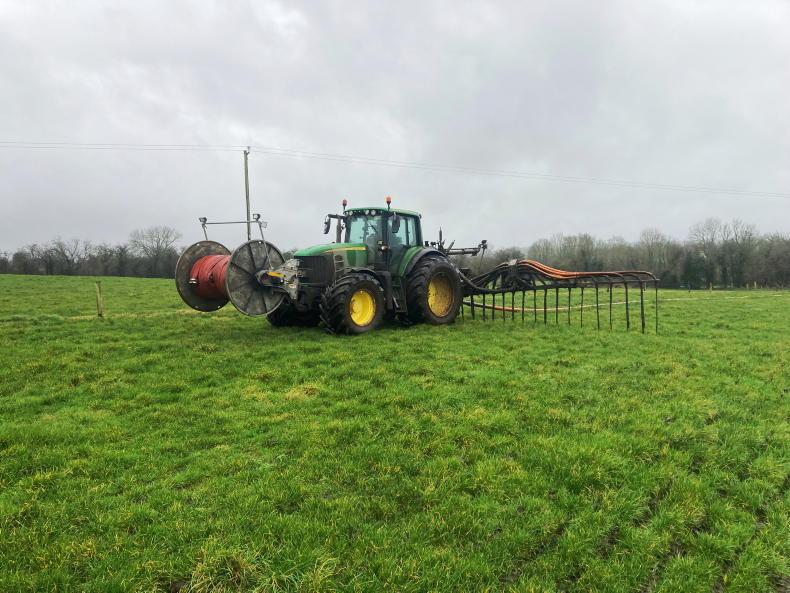
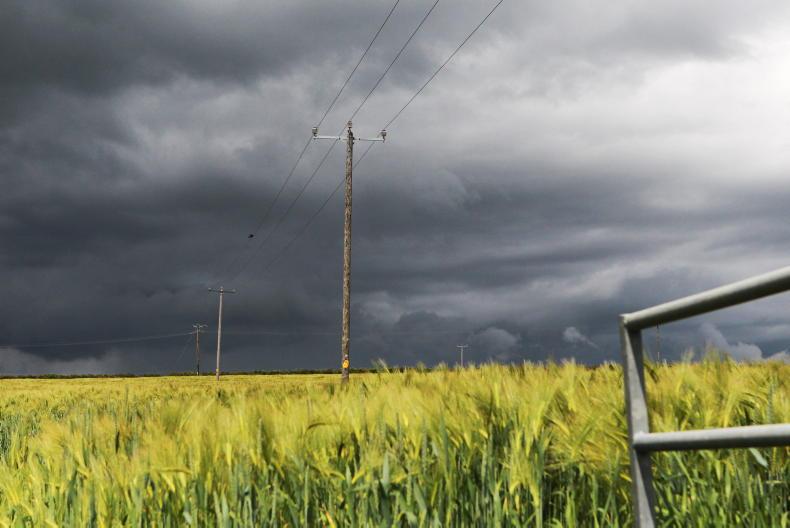
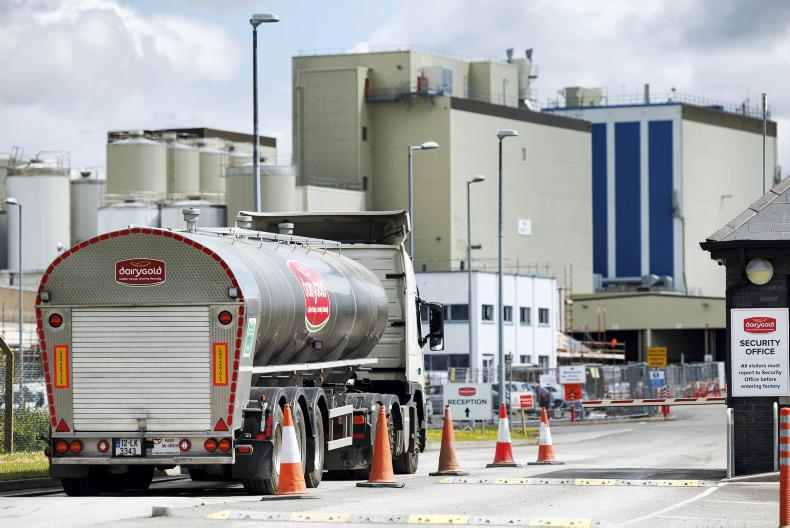
SHARING OPTIONS